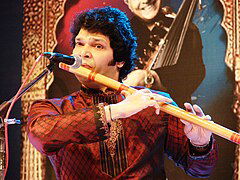BrangesdeBourcia Louisde Horoscope

BrangesdeBourcia Louisde
Date of birth and time Aug 21, 1932 , 20:22:00
Zodiac Sign Aries
Moon Sign
Zodiac Sign Leo
Sun Sign
Zodiac Sign Capricorn
Lagan
Rodden Rating: AA
Horoscope
 BrangesdeBourcia Louisde Biography
BrangesdeBourcia Louisde Biography
French-American mathematician best known for proving the long-standing Bieberbach conjecture in 1984, now called de Brangess theorem. He claims to have proved several important conjectures in mathematics, including the generalized Riemann hypothesis. He is the Edward C. Elliott Distinguished Professor of Mathematics at Purdue University in West Lafayette, Indiana. Born to American parents who lived in Paris, de Branges moved to the U.S. in 1941 with his mother and sisters. His native language is French. He did his undergraduate studies at the Massachusetts Institute of Technology (1949–1953), and received a PhD in mathematics from Cornell University (1953–1957). His advisors were Wolfgang Fuchs and then-future Purdue colleague Harry Pollard. He spent two years (1959–1960) at the Institute for Advanced Study and another two (1961–1962) at the Courant Institute of Mathematical Sciences. He was appointed to Purdue in 1962. An analyst, de Branges has made incursions into real, functional, complex, harmonic (Fourier) and Diophantine analyses. As far as particular techniques and approaches are concerned, he is an expert in spectral and operator theories. Link to Wikipedia biography Read less
 Latest Info with AI
Latest Info with AI
 AI Generated BrangesdeBourcia Louisde horoscope analysis
AI Generated BrangesdeBourcia Louisde horoscope analysis
Related Profiles
see allSimple tool that freedom your work way
Experience the freedom of a simpler, more intuitive workflow with our advanced astrologer app. Learn astrology effortlessly with our user-friendly tools.

Introducing DKSCORE beta release free for one month for first 500 user
- Register for Beta







